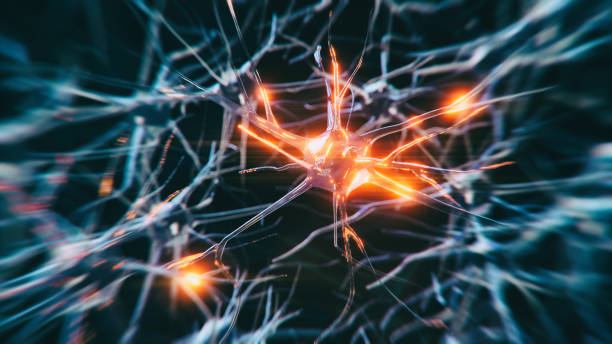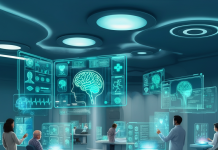If you thought you’d left acne behind when you were a teenager, think again. Even in your 20s, 30s, or 40s, hormonal changes, pregnancy, or menopause can cause acne.
It is caused by an imbalance in estrogen, progesterone, androgen, and testosterone levels in the body, leading to acne if not properly regulated. Furthermore, high amounts of the stress hormone cortisol can disrupt all of these hormones, contributing to painful and uncomfortable pimples.
What is Hormonal Acne, and How Can it Affect You?
Hormonal acne affects many women after puberty, particularly in maturity. Hormonal acne can occur regularly before, during, or after a menstrual cycle. Hormonal acne is similar to regular acne, but it can result in deeper nodules and cysts that linger long. Hormonal acne creates patches around the lips and on the chin and jawline. Acne across the entire face and back can be caused by hormonal acne.
Bacterial Acne Vs. Hormonal Acne
While hormones are a common cause for your acne, blocked pores caused by oil and dead skin cells can get infected, and it turns into a bacterial problem.
You may have bacterial acne if topical treatments for hormonal acne fail. For moderate to severe bacterial acne, a board-certified dermatologist may prescribe oral antibiotics to prevent infection or birth control from preventing excessive sebum production.
However, hormonal acne is efficiently treated with an acne treatment program under the supervision of a qualified dermatologist before it progresses to the severe bacterial stage. While a regular acne treatment can benefit people, acne treatment or clarifying acne treatment once a month or less will not clean your face in the same way as a specialized acne treatment program.
Types
Hormonal acne mainly affects the face, back, chest, and shoulders, causing various types of skin lesions, including:
- Whiteheads (closed and clogged pores)
- Blackheads (clogged pores that are open)
- Papules (small red and painful bumps)
- Pimples (pus-filled bumps)
- Nodules (big, firm, and painful lumps under the skin)
- Cysts (deep, painful, pus-filled bumps under the skin)
What Causes Hormonal Acne?
Clogged pores are the source of acne. Hormonal acne is triggered by an increase in the quantity of oil produced by your skin due to hormonal fluctuations. Acne is caused by the interaction of this oil with bacteria in the pores of your skin where hair develops (hair follicles).
Acne in adults can be caused by a variety of factors, including:
- Women’s hormone changes can arise at any age of the year, including around your period, irregular periods, pregnancy, menopause, and after taking birth control. Testosterone therapy for guys.
- Acne runs in the family.
- Negative effects of some drugs (including birth control pills, anticonvulsants, lithium, and steroids).
Hormonal Acne Treatments
These include:
1. Over-The-Counter(OTC) Medications
These may not be effective unless you have minor hormonal acne. Your doctor may prescribe oral medications to help you regulate your hormones and clean your skin, and Anti-androgen medications and oral contraceptives are two common alternatives.
2. Oral Contraceptives
Normalizing testosterone production with combined oral contraceptives can help clear acne. After analyzing the advantages and hazards, your doctor may prescribe combination oral contraceptives if your acne is severe and other ineffective treatments.
He will consider your hormone blood test results, age, menstrual cycle regularity, medical history, and other considerations when deciding on the correct contraception and dose. Oral contraceptive self-medication can be harmful.
3. Anti-Androgen Medications
Other medicines work by lowering androgen levels. Although most people have natural amounts of androgen, too much of it can cause acne by increasing sebum production.
Using anti-androgen medicines prevents the body from creating too much androgen and maintains its levels in check.
They are not suitable for everyone; speak with a health care practitioner about the risks and benefits.
4. Retinoids
Some patients may require topical retinoids to treat minor hormonal acne. These vitamin A compounds are sold as gels, lotions, and creams over the counter. A dermatologist may recommend a prescription-strength medication to keep your acne at bay.
5. Sunscreen
Use sunscreen every day while using topical retinoids, as they increase your chance of acquiring a sunburn.
6. Natural Treatments
Certain organic strategies can treat mild hormonal acne. However, they will not be as successful as traditional procedures, and there is little evidence of their usefulness. Tea tree oil is one of these natural remedies. Tea tree oil is typically harmless, but you should check with your doctor to see if it may conflict with any drugs you’re taking.
Conclusion
Hormonal acne can appear in the T-zone throughout puberty – the nose, forehead, and chin. Acne can also appear during menopause as a result of hormonal fluctuations.
If you see a best dermatologist, your hormonal acne may be mild, moderate, severe, or extremely severe. Hormonal acne has several treatments, including topical creams, oral contraceptives, and anti-androgen medications.
FAQs
1. How to avoid hormonal acne?
You should:
- Clean your face twice a day.
- Use only a pea-sized quantity of any acne treatment. Applying too much quantity can make skin dry and irritated.
- Apply sunscreen every day.
- Apply only non-comedogenic products to reduce your risk of clogged pores.
2. How do I know if my acne is hormonal or bacterial?
You can tell if acne is hormonal or bacteria by its severity, if flare-ups occur during hormonal imbalances, whether topical treatments resolve the issues, or if systemic medications are needed.
3. Which vitamins should I take for hormonal acne?
Acne is more common in women throughout their monthly menstrual periods. Increasing your vitamin A, D, zinc, and vitamin E intake will help you get rid of acne and have better skin.















